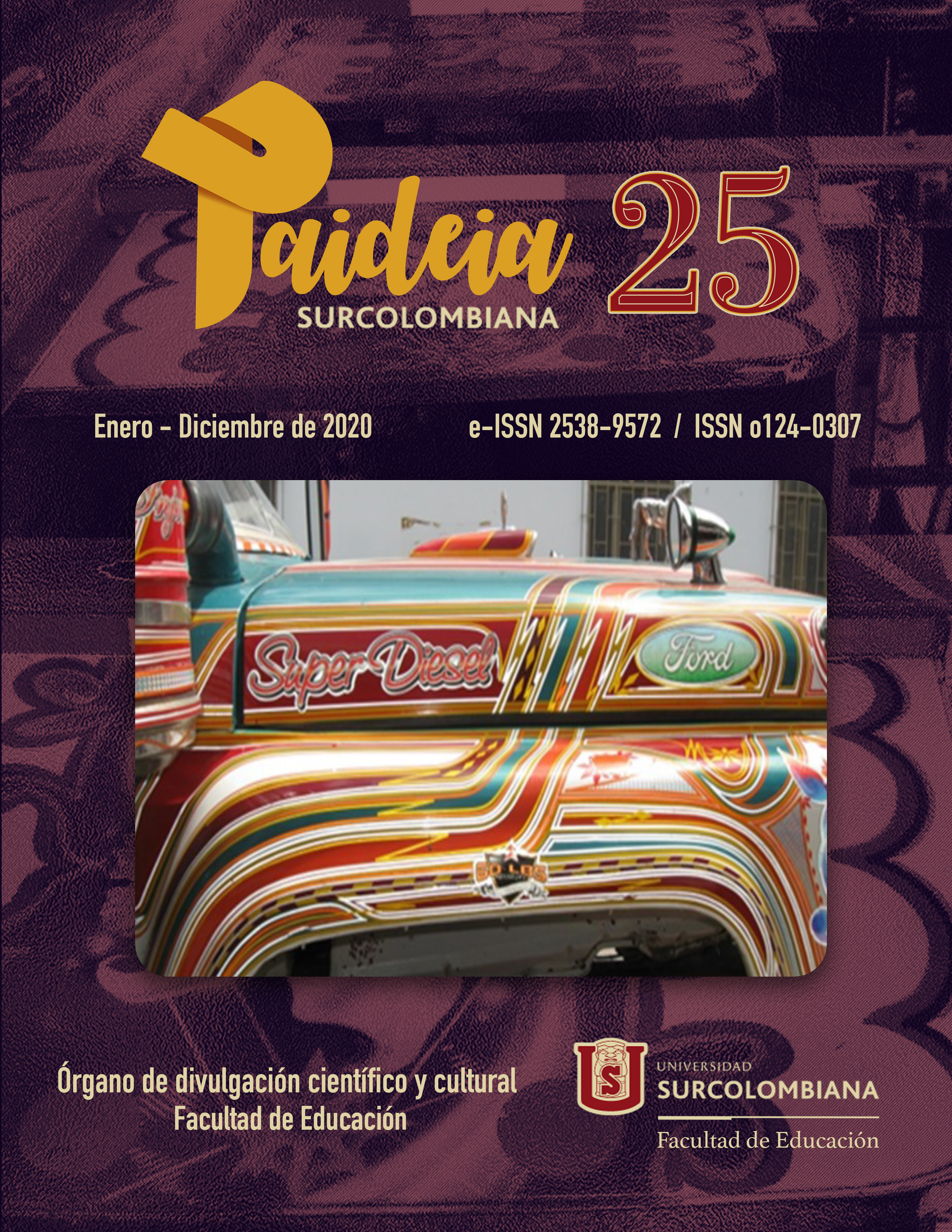Environmental Education at the Luis Rodríguez Valera Educational Institution, in the municipality of Valledupar - Cesar
##plugins.themes.bootstrap3.article.main##
The present research called Environmental Education at the Luis Rodríguez Valera Educational Institution, in the municipality of Valledupar - Cesar, sought to develop environmental education guidelines at the Luis Rodríguez Valera Educational Institution, in the municipality of Valledupar - Cesar. Theoretically it was supported by the postulates of the Tbilisi Conference (1977), Rio Declaration on Environment and Development (1993), Unesco International Conference PNAMU on Education Training and Environmental Training Moscow (1987), The Declaration of Comodoro Rivadavia. Transforming Our World: the 2030 Agenda for Sustainable Development (Sauvé, 2014), in addition to the Legal Norms of Colombia. Methodologically it was framed in the type of mixed research. Its development was structured in six trajectories. With a non-probabilistic sample of ninety (90) students, ten (10) teachers and a focus group of seven (7) students to whom a semistructured interview and an in-depth interview with the rector were applied. With the analysis of the results obtained in the study it was considered that in the I, E in question there is very little ecological awareness, so it was necessary to build the proposal entitled United will take care of our house, the Earth that after applied and systematized its results were concluded that its execution was successful, achieving the formation of ecological awareness in both students and teachers.
Downloads
##plugins.themes.bootstrap3.article.details##
Conferencia Intergubernamental de Educación Ambiental de Tbilisi. (1977). Recuperado de: http://eaxxi.blogspot.com/2012/10/tbilisi-1997-declaracion-de-la.html. (12/12/2018).
Flores, C. (2015). Educación ambiental en representaciones de docentes de escuelas secundarias. CPU-e. Revista de Investigación Educativa 16Veracruz, México: Universidad Veracruzana, 3. Obtenido de Recuperado de http://www.redalyc.org/articulo.oa?id=283128328003 (12/12/2018).
González, E. (2012). Formación de la conciencia ecológica como estructura compleja para la transformación educativa. Táchira, Venezuela: Lito Forma.
López, I. (2011). Medio Ambiente y PRAE. Bogotá: Universidad Nacional de Colombia
Martínez, R. (2010). La importancia de la educación ambiental ante la problemática actual. Revista Electrónica Educare, vol. XIV, núm. 1, enero-junio, pp. 97-111. Universidad Nacional Heredia, Costa Rica. Recuperado de: https://www.redalyc.org/pdf/1941/194114419010.pdf (12/12/2018).
Ministerio de Educación Nacional (2017). Proyecto ambiental educar para el desarrollo sostenible. PRAE Recuperado de: http://www.mineducacion.gov.co/1621/article-90893.html. (12/12/2018).
Ministerio de Educación Nacional y de Ambiente (2014.). Educar para el desarrollo sostenible. Recuperado de: www.mineducacion.gov.co/1621/article-90893.htm (12/12/2018).
Navarro, L. (2007). Problemática de la educación ambiental en las instituciones educativas. México: Ibrahim.
Plaza, C. (2017). La importancia de la educación ambiental. Cuenca: Editorial EcoExperience.
Rivas, J. (2006). Proyecto educativo integrar comunitario para la dotación de áreas verdes a la Escuela Básica Nacional 12 de marzo. Tesis de grado. Universidad Rafael Urdaneta, Maracaibo, Venezuela. Recuperado en: https://www.redalyc.org/pdf/658/65828406006.pdf (12/12/2018).
Sarango, J. Sánchez, S. y Landivar, J. (2016). Educación ambiental. ¿Por qué la Historia? Revista Universidad y Sociedad [seriada en línea], 8 (3). pp. 184 -187. Recuperado de: http://scielo.sld.cu/pdf/rus/v8n3/rus25316.pdf (12/12/2018).
UNESCO-PNUMA. (1990). Programa Internacional de Educación Ambiental. París: La Organización. Recuperado en: https://unesdoc.unesco.org/ark:/48223/pf0000038550_spa (12/12/2018).














